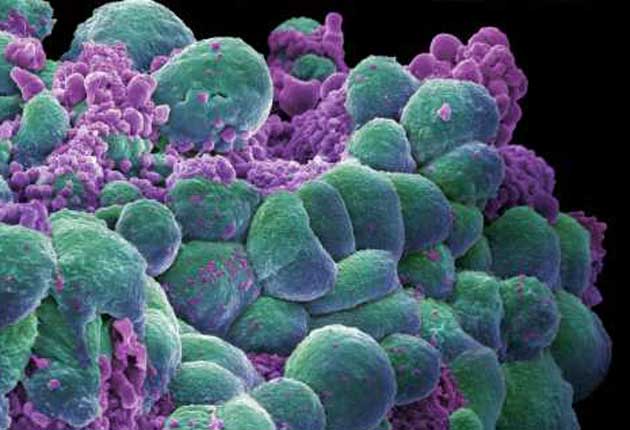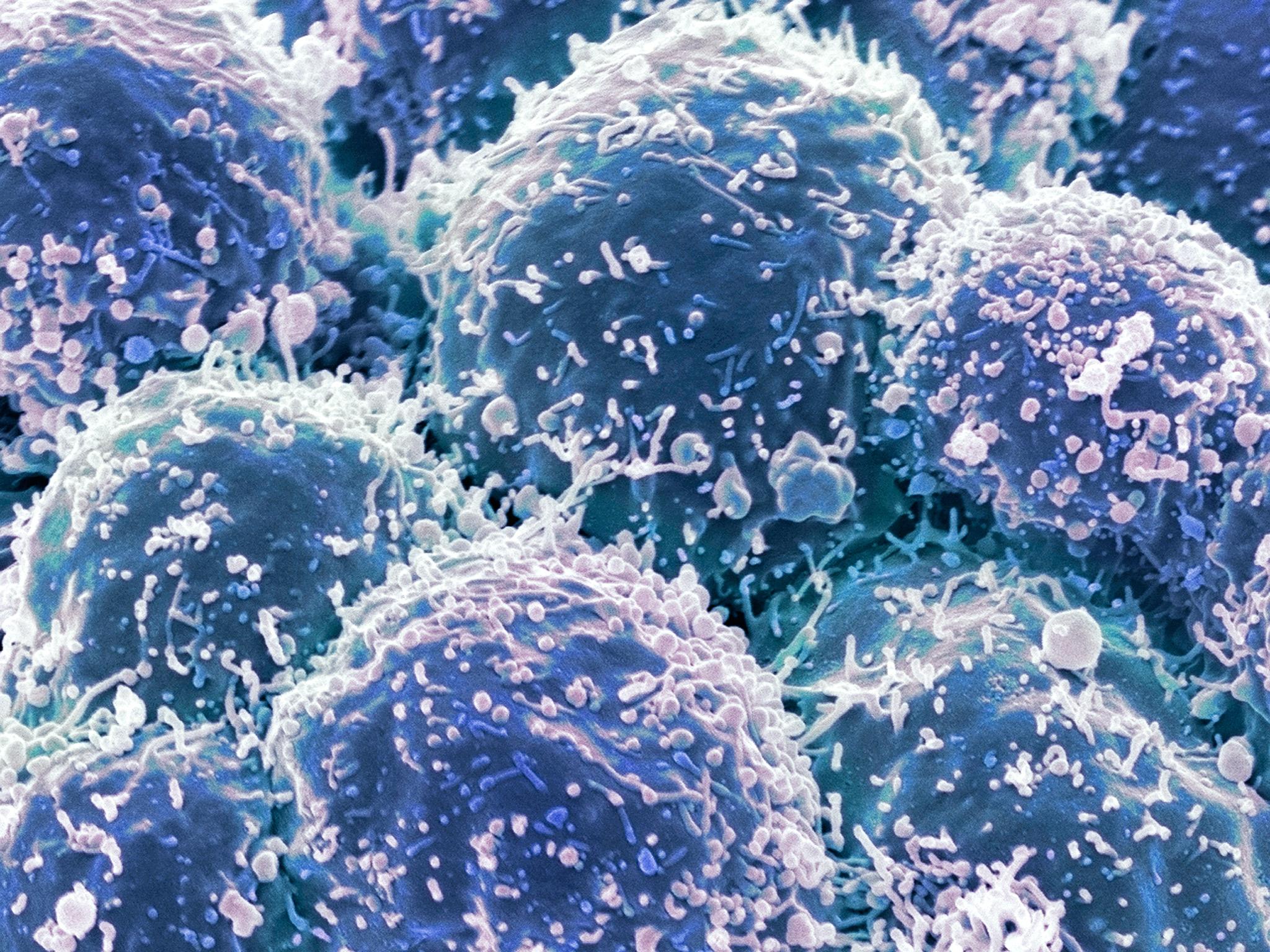Most cancers are caused by bad luck – not bad judgement, says study
Findings suggest that it may be difficult for individuals to significantly reduce their risk of developing cancer

Your support helps us to tell the story
From reproductive rights to climate change to Big Tech, The Independent is on the ground when the story is developing. Whether it's investigating the financials of Elon Musk's pro-Trump PAC or producing our latest documentary, 'The A Word', which shines a light on the American women fighting for reproductive rights, we know how important it is to parse out the facts from the messaging.
At such a critical moment in US history, we need reporters on the ground. Your donation allows us to keep sending journalists to speak to both sides of the story.
The Independent is trusted by Americans across the entire political spectrum. And unlike many other quality news outlets, we choose not to lock Americans out of our reporting and analysis with paywalls. We believe quality journalism should be available to everyone, paid for by those who can afford it.
Your support makes all the difference.Most cases of cancer are the result of sheer bad luck – not unhealthy lifestyles, diet or even inherited genes, new research suggests today.
Scientists from Johns Hopkins University found that random mutations that occur in DNA when cells divide are responsible for two-thirds of adult cancers.
The remaining third are linked to environmental factors or defective inherited genes, according to the research published in the medical journal Science.
The findings suggest that it may be difficult for individuals to significantly reduce their risk of developing cancer by altering their lifestyle – but the scientists warn that alcohol, smoking and a poor diet can add to the “bad luck factor” involved in cancer.
Researchers found a strong correlation between a particular tissue’s stem cell division rate and its likelihood of developing cancer.
The more often cells divided, the more likely that letters of their genetic code become jumbled, leading to an increased cancer risk.
Overall, the study found that random mutations due to stem cell division could explain around 65 per cent of cancer incidence.
Professor Bert Vogelstein, from Johns Hopkins University School of Medicine in Baltimore, said: “All cancers are caused by a combination of bad luck, the environment and heredity, and we’ve created a model that may help quantify how much of these three factors contribute to cancer development.
“This study shows that you can add to your risk of getting cancers by smoking or other poor lifestyle factors. However, many forms of cancer are due largely to the bad luck of acquiring a mutation in a cancer driver gene regardless of lifestyle and heredity factors. The best way to eradicate these cancers will be through early detection, when they are still curable by surgery.”

Scientists have known for more than a century some tissue types give rise to cancer millions of times more than others, but why is not clear.
The research suggests that the answer chiefly lies in the number of times a tissue’s stem cells divide. “Bad luck” mutations that occur when one chemical letter in DNA is wrongly swapped for another during cell replication largely explained 22 of the 31 cancer types studied.
The remaining nine had incidence rates higher than predicted by bad luck, due to the influence of environmental or inherited factors.
“We found the types of cancer that had higher risk than predicted by the number of stem cell divisions were precisely the ones you’d expect, including lung cancer, which is linked to smoking; skin cancer, linked to sun exposure; and forms of cancers associated with hereditary syndromes,” Professor Vogelstein said.
People who live a long life despite exposure to cancer-causing agents are not blessed with “good genes” but good luck, the professor said.
Join our commenting forum
Join thought-provoking conversations, follow other Independent readers and see their replies
Comments